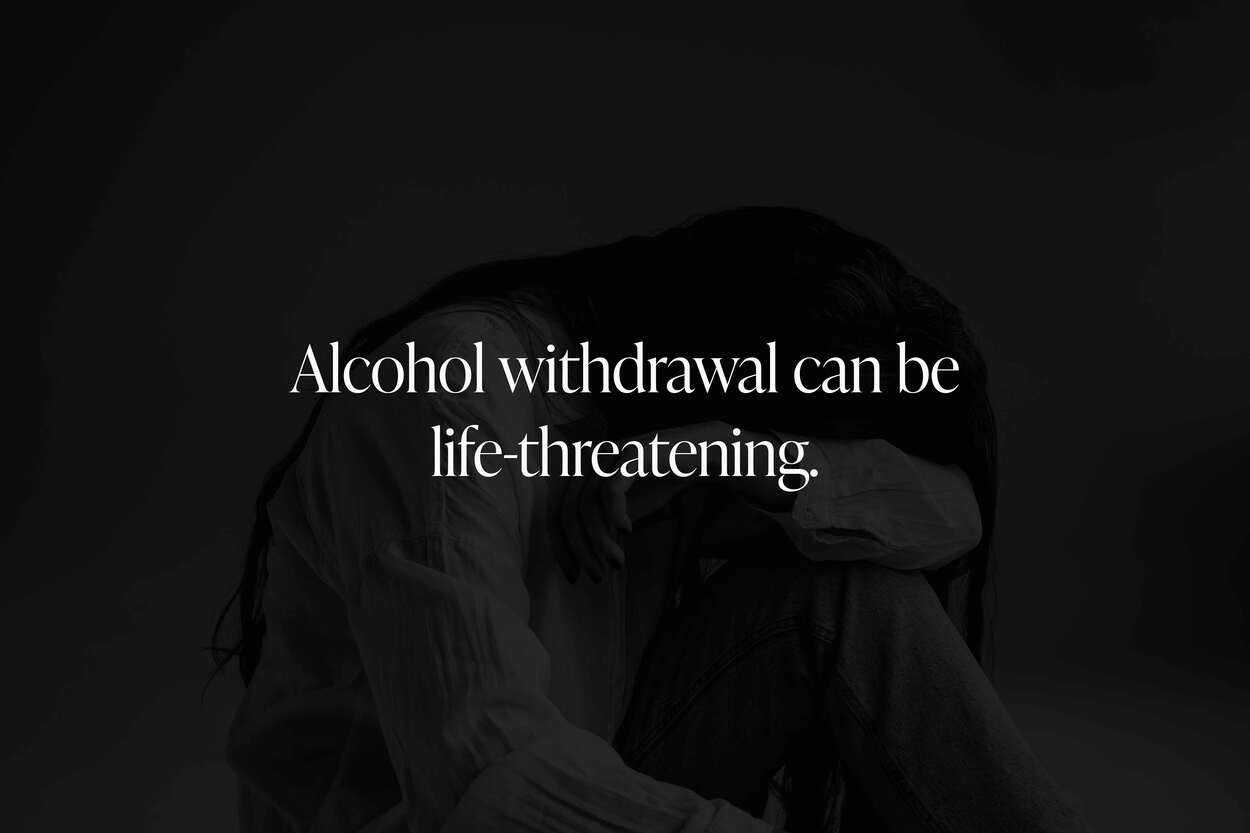Table of Contents
What Is Alcohol Withdrawal?
Alcohol withdrawal is the body’s response to the sudden reduction or cessation of long-term alcohol use. It occurs because chronic drinking alters the brain’s chemistry, and when alcohol is removed, the nervous system reacts aggressively. The brain becomes overstimulated, leading to symptoms that range from mild discomfort to severe, life-threatening conditions. These symptoms can begin within hours after the last drink and require close monitoring.

Common Symptoms of Alcohol Withdrawal
Withdrawal symptoms differ depending on a person's drinking history, physical health, and the presence of other substances. For many, symptoms begin within 6 to 12 hours after the last drink and peak between 24 and 72 hours.
Mild to moderate symptoms include:
- Shaking or hand tremors
- Irritability and anxiety
- Nausea and vomiting
- Headache
- Increased heart rate and blood pressure
- Difficulty sleeping
Severe symptoms can include:
- Hallucinations (visual, auditory, or tactile)
- Seizures
- Delirium tremens (DTs): characterized by confusion, agitation, fever, and extreme nervous system hyperactivity
Delirium tremens occurs in approximately 3–5% of those withdrawing from heavy, prolonged alcohol use and can be fatal without medical intervention.
When to Seek Medical Help
Immediate medical attention is essential if any of the following occur:
- Seizures
- Hallucinations
- Irregular heartbeat
- Severe confusion or disorientation
- High fever
These may be signs of DTs or other complications that require inpatient care. Most cases of mild withdrawal can be managed with professional outpatient support, but self-detox at home is not recommended without medical guidance.

How Is Withdrawal Treated?
Withdrawal treatment is based on symptom severity. The gold standard is medical detoxification under supervision. In most inpatient or outpatient settings, physicians assess severity using tools like the CIWA-Ar (Clinical Institute Withdrawal Assessment for Alcohol) scale to guide treatment decisions.
The primary treatments include:
- Benzodiazepines to reduce anxiety and prevent seizures
- Intravenous fluids and electrolyte correction
- Nutritional support, including thiamine and folic acid
- Ongoing vital sign monitoring
Supportive care—such as a quiet environment, reassurance, and hydration—also improves outcomes.
Post-Acute Withdrawal Symptoms (PAWS)
While most acute symptoms resolve within 5 to 7 days, some people experience post-acute withdrawal symptoms. These can last weeks or even months and may include:
- Low energy or fatigue
- Sleep disturbances
- Irritability
- Mood swings
- Alcohol cravings
PAWS is more common in individuals with long histories of alcohol dependence and may interfere with long-term recovery if not addressed. Structured treatment programs and therapy can help manage these symptoms.
Who Is at Risk for Severe Withdrawal?
Some people are at greater risk for serious complications. Risk factors include:
- A history of previous alcohol withdrawal episodes
- Co-occurring mental health disorders
- Use of other central nervous system depressants (e.g., opioids, benzodiazepines)
- Chronic liver disease
- Poor nutritional status
In these cases, inpatient detox is strongly advised to reduce health risks and support recovery safely.
Can You Withdraw at Home?
While mild withdrawal may be managed at home under medical supervision, it’s not suitable for everyone. Home detox carries serious risks, especially if the person is alone, has had seizures before, or drinks heavily on a daily basis. Consulting with a healthcare provider or entering a supervised program offers the safest path forward.
For additional help navigating treatment and detox options, visit the Addiction Guidance page from Hollywood Hills Recovery.
Long-Term Considerations
Alcohol withdrawal is only the first step in recovery. Long-term sobriety requires behavioral support, therapy, and sometimes medication-assisted treatment. Without a plan, many individuals relapse, often within the first few months. Continuing care programs and sober living environments can increase the chances of successful recovery.

Final Thoughts
Alcohol withdrawal is a medically serious condition that reflects the brain’s dependence on alcohol. Recognizing the symptoms, understanding the risks, and seeking timely treatment can make the difference between a difficult detox and a life-threatening crisis. Professional guidance is critical—not just during withdrawal, but throughout the recovery journey.











